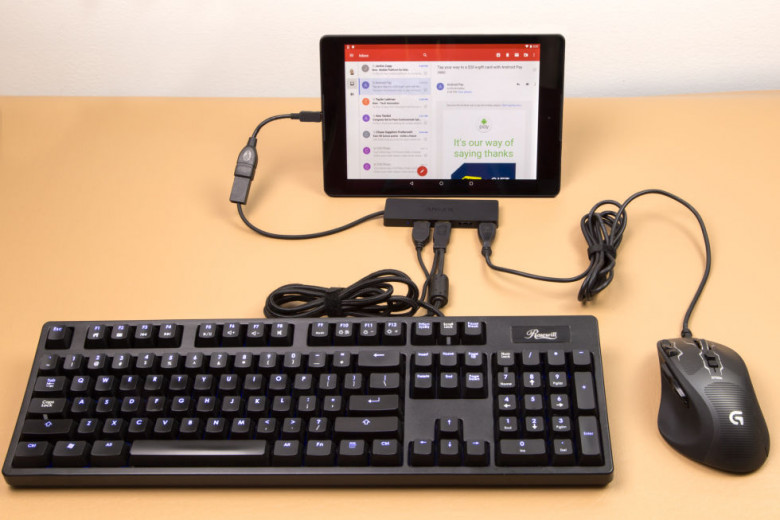Android on the desktop: Not really “good,” but better than you’d think
Android is the most popular mobile OS on the planet, and Google has brought the OS to cars, watches, and televisions. And, according to a report from The Wall Street Journal, Google will soon be bringing Android to yet another form factor: desktop and laptop computers. Re-architecting Android for a mouse and keyboard is going to require major changes to the smartphone operating system, but Android is actually much farther along that path today than most people realize.
We've Frankensteined together a little Android desktop setup using a Nexus 9 and a USB keyboard and mouse to see just how easy—or complicated—it was to use what is still formally a "mobile" operating system in a desktop context today, right now, without complicated changes or reconfigurations. It worked, but Android still has a ways to go before it can be called a real desktop operating system—quite a ways, in some cases.
The biggest affordance Android makes for a desktop OS is that it supports a keyboard and mouse. Any Android device can pair with a Bluetooth mouse and keyboard, and if you want to go the wired route, just about any phone can plug in a mouse and keyboard via a USB OTG cable and a USB hub. Some OEMs even build Android devices with a keyboard and mouse, like the Asus Transformer series, which is a convertible laptop that runs Android.










































































